This was formerly the Clifton Cinema, opened in May 1937 by Captain Sidney Clift, the founder of the chain of Black Country cinemas bearing his name. The Sedgley Clifton, with seating for more than 1,000, was one of the 1930s super-cinemas, so luxurious they were dubbed ‘Picture Palaces’. The opening programme’s main feature was San Francisco, starring Clark Gable, Spencer Tracy, and Jeanette MacDonald. In spite of diversifying into pop and variety shows, the Sedgley Clifton screened its last film in 1978.
Prints and text about The Clifton.
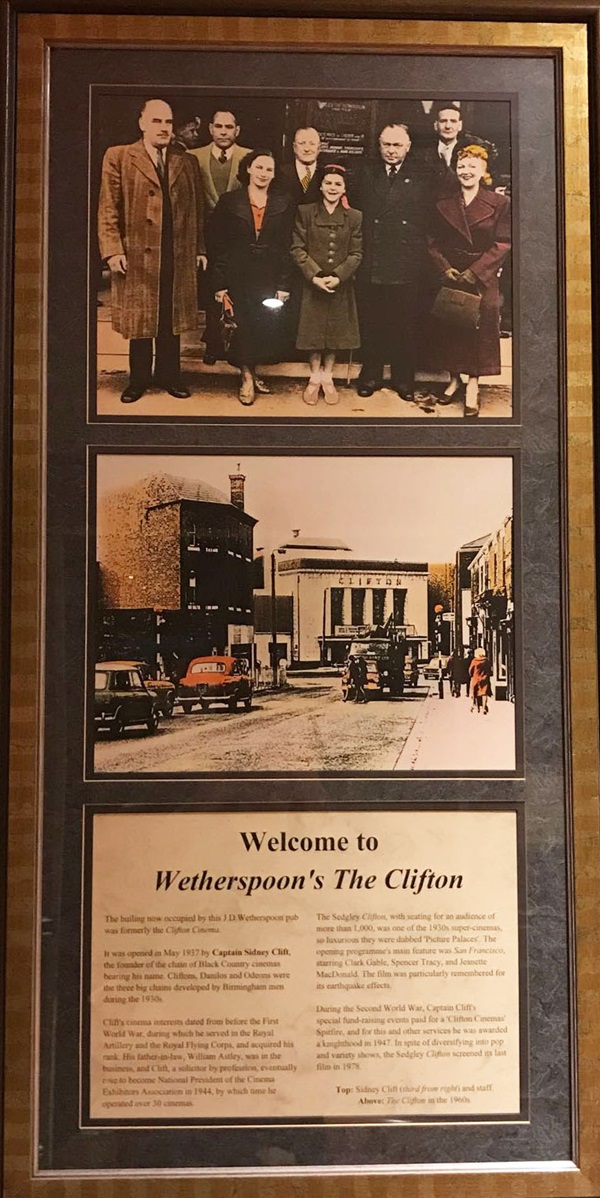
The text reads: The building now occupied by this J D Wetherspoon pub was formerly the Clifton Cinema.
It was opened in May 1937 by Captain Sidney Clift, the founder of the chain of Black Country cinemas bearing his name. Cliftons, Danilos and Odeons were the three big chains developed by Birmingham men during the 1930s.
Clift’s cinema interests dated from before the First World War, during which he served in the Royal Artillery and the Royal Flying Corps, and acquired his rank. His father-in-law, William Astley, was in the business, and Clift, a solicitor by profession, eventually rose to become National President of the Cinema Exhibitors Association in 1944, by which time he operated over 30 cinemas.
The Sedgley Clifton, with seating for an audience of more than 1,000, was one of the 1930s super-cinemas, so luxurious they were dubbed ‘Picture Palaces’. The opening programme’s main feature was San Francisco, starring Clark Gable, Spencer Tracy, and Jeanette MacDonald. The film was particularly remembered for its earthquake effects.
During the Second World War, Captain Clift’s special fundraising events paid for a Clifton Cinemas Spitfire, and for this and other services he was awarded a knighthood in 1947. In spite of diversifying into pop and variety shows, the Sedgley Clifton screened its last film in 1978.
Top: Sidney Clift (third from right) and staff
Above: The Clifton in the 1960s.
A print and text about the history of cinemas.
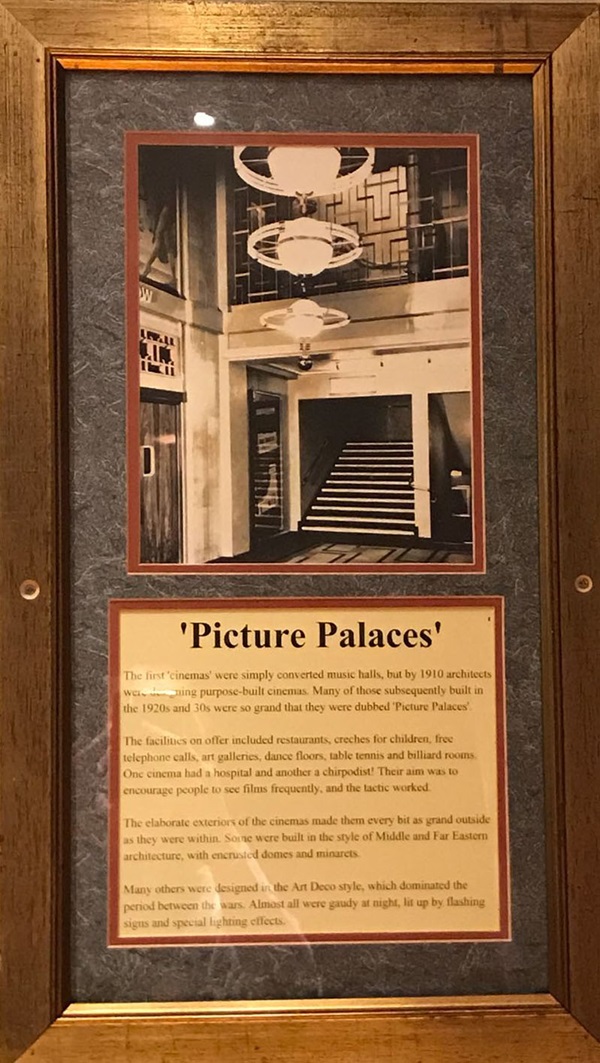
The text reads: The first cinemas were simply converted music halls, but by 1910 architects were designing purpose-built cinemas. Many of those subsequently built in the 1920s and 30s were so grand that they were dubbed ‘Picture Palaces’.
The facilities on offer included restaurants, crèches for children, free telephone calls, art galleries, dance floors, table tennis and billiard rooms. One cinema had a hospital and another a chiropodist! Their aim was to encourage people to see films frequently, and the tactic worked.
The elaborate exteriors of the cinemas made them every bit as grand outside as they were written. Some were built in the style of Middle and Far Eastern architecture, with encrusted domes and minarets.
Many others were designed in the Art Deco style, which dominated the period between the wars. Almost all were gaudy at night, lit up by flashing signs and special lighting effects.
Old photographs of the Clifton Cinema.
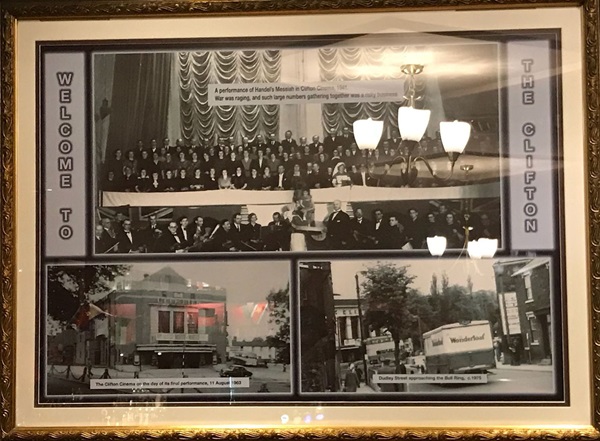
The Bull Ring, Sedgley, c1905.
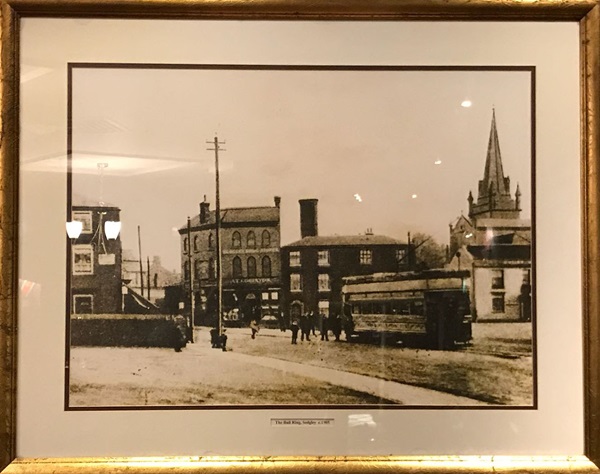
Photographs of the Bull Ring, Sedgley, c1900.
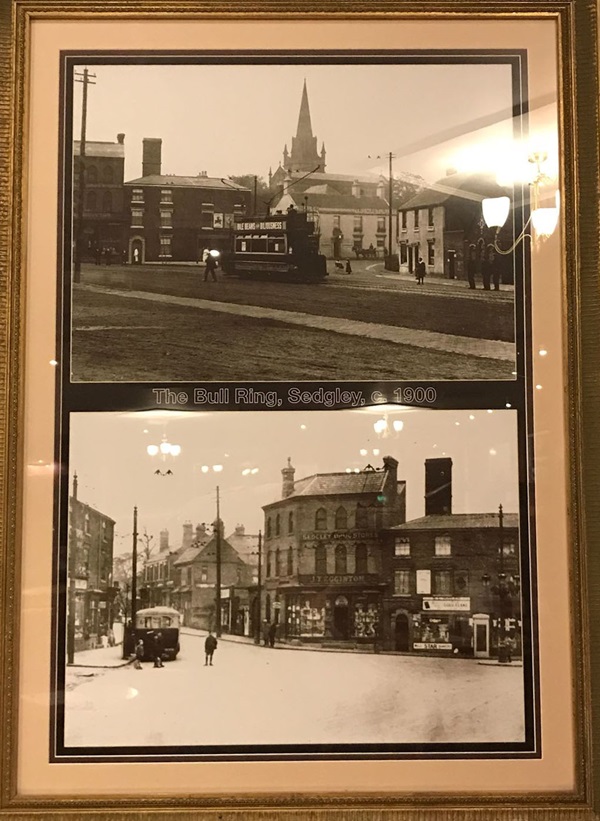
A print of the Beacon Monument, Sedgley, c1904.
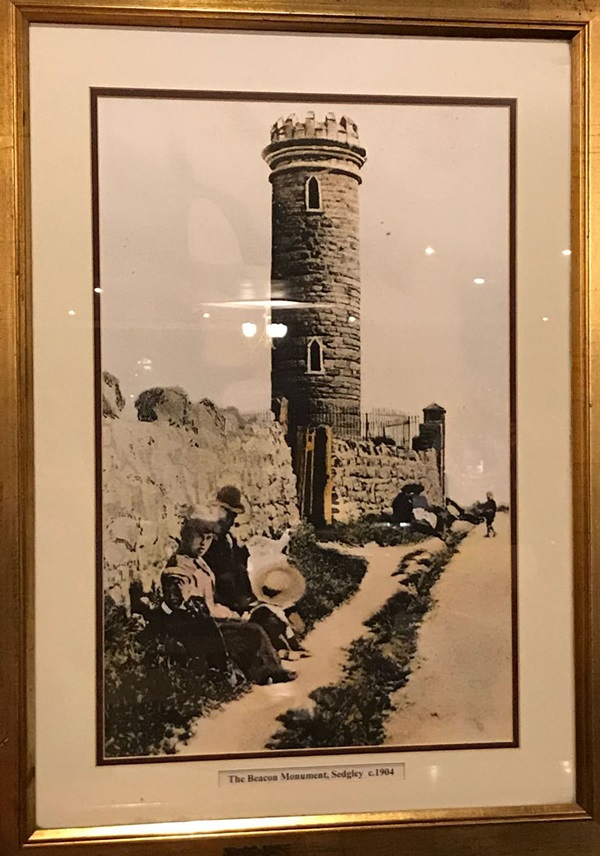
Features of the old cinema can still be found above the pub.
These include projectors.
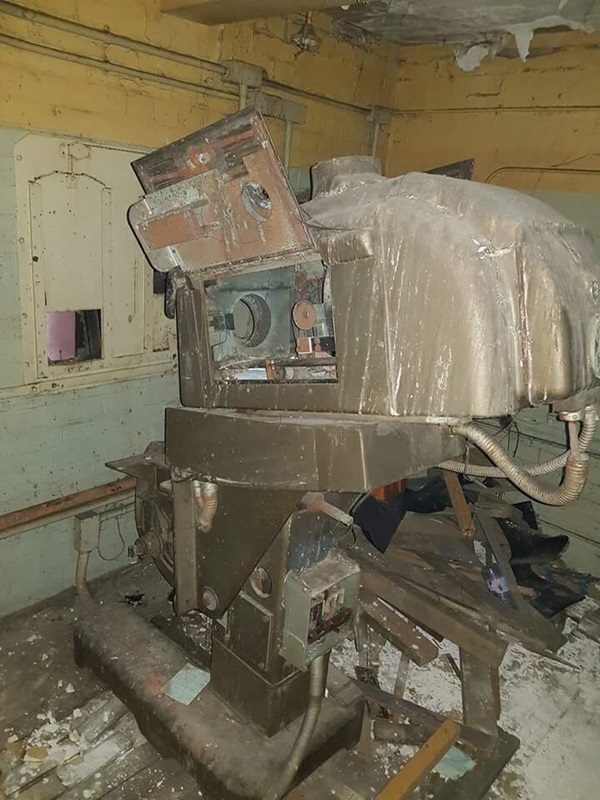
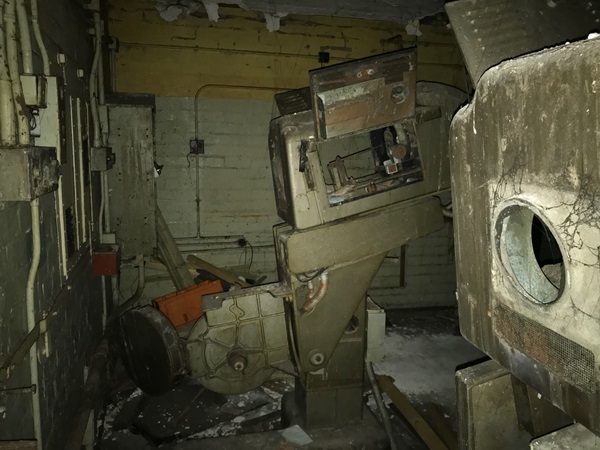
External photographs of the building – main entrance.
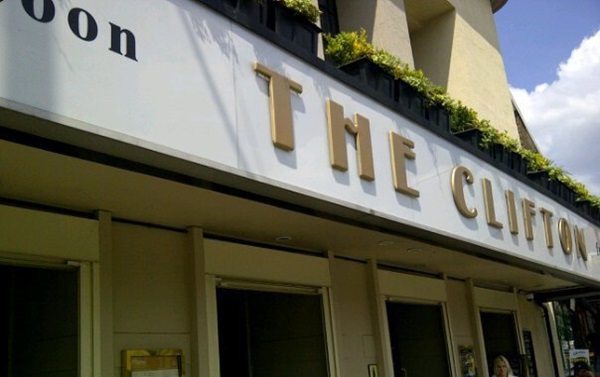
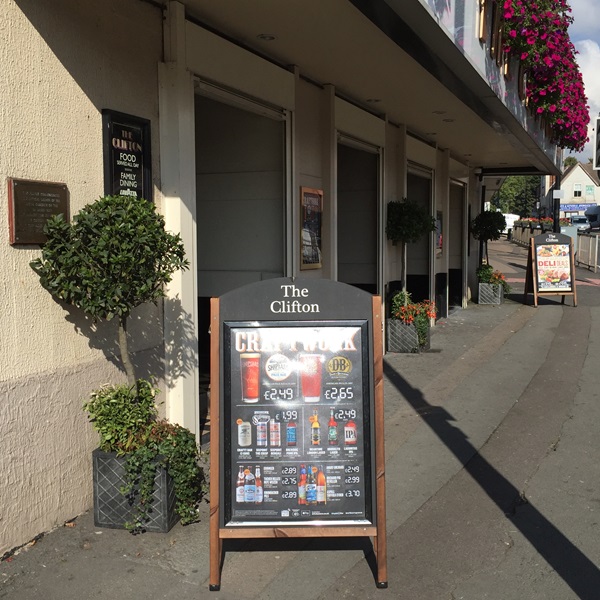
If you have information on the history of this pub, then we’d like you to share it with us. Please e-mail all information to: pubhistories@jdwetherspoon.co.uk